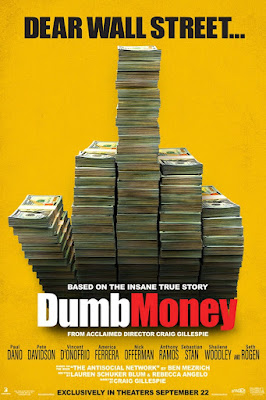TOP 10 OF 2023
THE IRON CLAW Review
AQUAMAN AND THE LOST KINGDOM Review
Remember when Willem Dafoe was in an Aquaman movie? Doesn't that feel like a lifetime ago and a universe away? Unfortunately, thanks to the pandemic and James Gunn both things are by and large true. Aquaman and the Lost Kingdom is the end of an era, the last of a dying breed, and though certainly not how Snyder saw things ending, the movie itself is not the worst note the current iteration of the DCEU could have gone out on (that would have been The Flash). It's not good, don't get me wrong, but there is a certain charm that director James Wan and, of course, star Jason Momoa bring to what are already absurd proceedings. Likely not the better movie of the two, but because I went into this much-delayed and much-maligned sequel five years after having been conditioned to certain expectations, this was a better overall experience because of the (much) lower anticipation level. All things considered, Wan is still very much a world-class filmmaker who knows how to mount a handsomely constructed action-adventure romp and when hung on the back of a comically over the top lead it couldn't be more perfect for feeding every Saturday morning desire of every nine-year-old out there.
POOR THINGS Review
While I never fleshed these questions and ideas out with anyone, this was the beginning seeds of understanding the rather broad (and simple) lesson that how you present yourself physically wasn't the aspect that would ultimately determine what makes you different from someone else. This isn't a slight against the goth crowd either, but more an observation and kind of affirmation that such exterior effort shouldn't be necessary in order to feel seen and valued. There's no shame in wanting to feel singular and validated - high school today must be a thousand times more complicated in these regards with what a mess social media has made in not only feeling the need to stand out in your bubble, but against the entirety of the internet - but if there is nothing beyond the desire to be different than simply being different that is when we enter the territory of someone's entire personality consisting only of being non-conforming because that's what they do. When considering all of this through the lens of high school circles, weird for the sake of weird began to feel as hollow as the goths no doubt assumed most of the jock's heads were. Weird for the sake of being weird is what brings me to Poor Things and whether or not the way it presents itself was simply to set itself apart or if the attempts to subvert and push the envelope were in fact to serve a bigger, more well-rounded series of ideas. That, or at least be in service of lampooning some very specific, but recognizable facet of the world in which viewers could relate to the point their opinion of the film might transcend the intentionally strange, possibly superficial surface.
THE COLOR PURPLE Review
I wrestled with whether or not I should finally see Steven Spielberg's 1985 adaptation of The Color Purple, the 1982 novel written by Pulitzer Prize winner Alice Walker in the form of letters between Celie - a poor African-American girl in the early 1900s - and God, as it has remained one of the bigger holes in my attempts at completing Spielberg's filmography. Given Blitz Bazawule's new film was based on the 2005 theatrical production that turned Walker's work into a full-fledged musical though, I decided I'd write about this new film from that perspective, which is to say, one's first encounter with the material in any form. To this extent, Bazawule's film is both what I expected it to be given the context clues around the story while also being rather surprising in who its targets are and where its objectives lie. I will be interested to see how this latest adaptation differs from Spielberg's not only due to the fact it is sprinkled with musical numbers and is generally of a lighter tone than is maybe suitable for the material, but largely (mostly) for the perspective from which it is presented and told. There has of course been much discussion over the last few years as to whether Spielberg, a Jewish white male, was the right person to best depict the lives of African American women in rural Georgia during this time period to which the answer is obviously no, but with the introduction of Bazawule's vision into the fold the ways in which these iterations compare and contrast will certainly make for an interesting case study.











































